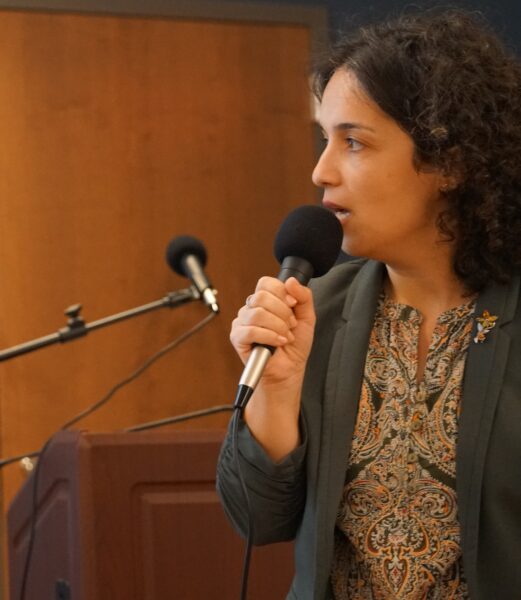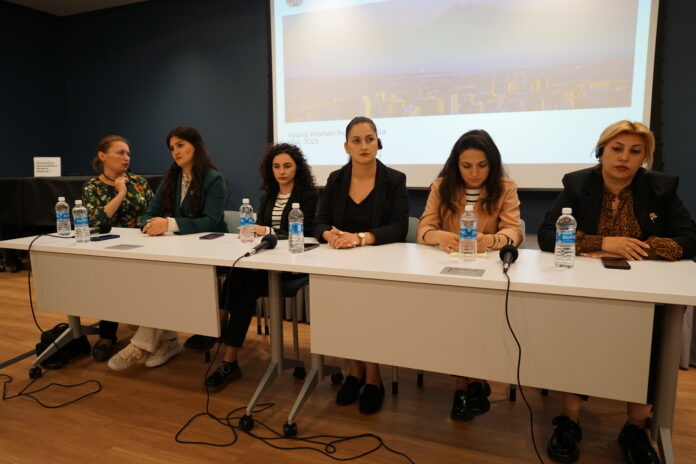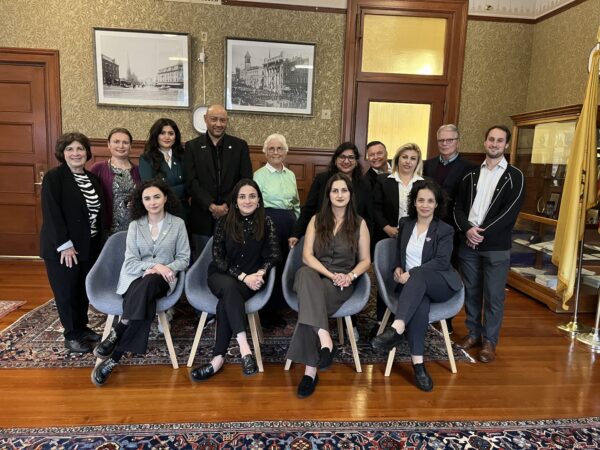BELMONT, Mass. — Five women in municipal government in Armenia spoke about their towns and jobs, and their working visit to the US, at a panel discussion organized by the Cambridge-Yerevan Sister City Association (CYSCA) and cosponsored by the National Association for Armenian Studies and Research (NAASR) as part of the latter’s Calouste Gulbenkian Foundation Lecture Series on Contemporary Armenian Issues. The event took place at the NAASR headquarters in Belmont during the evening of October 19.
The five women were in Massachusetts from October 13 to 21 as part of a CYSCA program which is funded by the Congressional Office for International Leadership (COIL, formerly known as the Open World Leadership Center), a legislative branch agency that supports the US Congress. They spent one week in Washington D.C. prior to their Massachusetts visit, and they were accompanied by a facilitator from the US embassy in Yerevan, a political assistant there named Lilit Antonyan, as well as interpreter Svetlana Hovhannisyan.
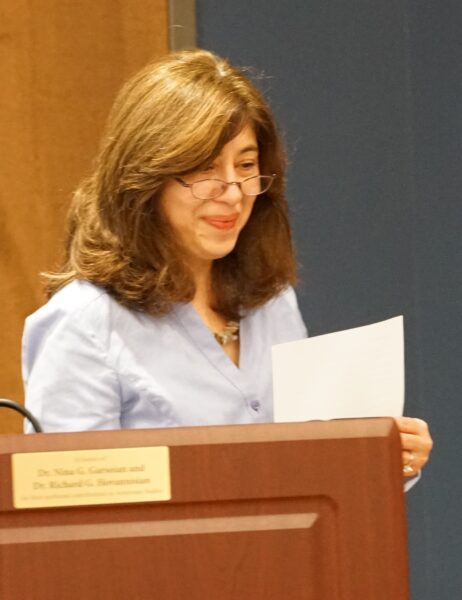
NAASR Executive Director Silva Sedrakian welcomed the audience, while Roxanne Etmekjian, NAASR board member and president of CYSCA, provided some background about the CYSCA program. Jonathan Hecht, a CYSCA board member and former Massachusetts State Representative and Watertown City Councilor, served as moderator and pointed out this was the fourth day of the group’s visit.
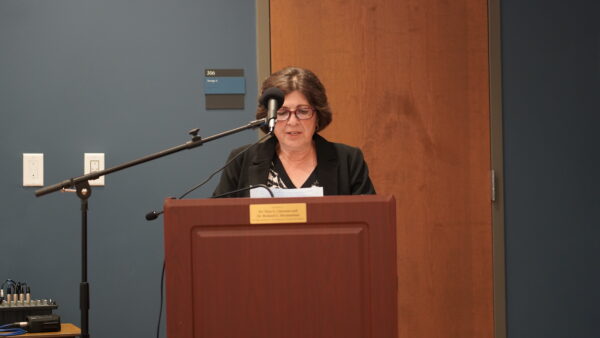
Each day, Hecht said, was chockfull of meetings. Monday the group met with Cambridge’s mayor and members of the city council and city government, discussing issues such as economic development, transportation and clean energy. They met with nonprofit organizations working on domestic violence issues and groups focusing on women’s rights and empowerment, in order to see how these issues are dealt with on the city level in Cambridge.
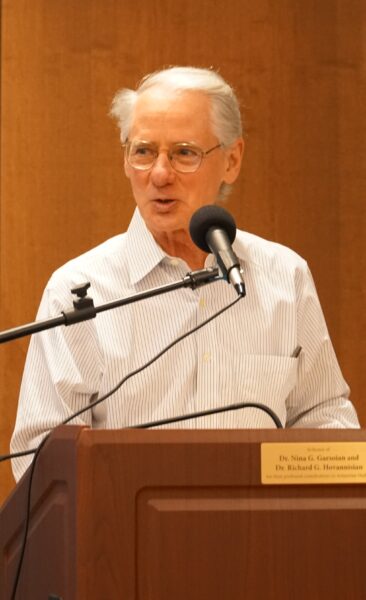
Tuesday they moved to the state level and met state legislators representing Cambridge, Watertown and other municipalities at the State House, as well as with the Massachusetts Caucus of Women Legislators, the League of Women Voters, and the Metropolitan Area Planning Council, a regional organization of the Boston area dealing with infrastructure, emergency response, immigrants and other important issues.
Wednesday they went to central Massachusetts, to the town of Lancaster and the city of Fitchburg, where they met with local officials, and toured Fitchburg’s senior center and community television station, as well as visited Hollis Hills Farm. On Thursday, they visited the Perkins School for the Blind, Sheriff Peter Koutoujian at the Middlesex House of Correction, and the staff of the Women and Public Policy Program at Harvard University’s Kennedy School. They had one more full day of meetings to look forward to on Friday, Hecht observed.
